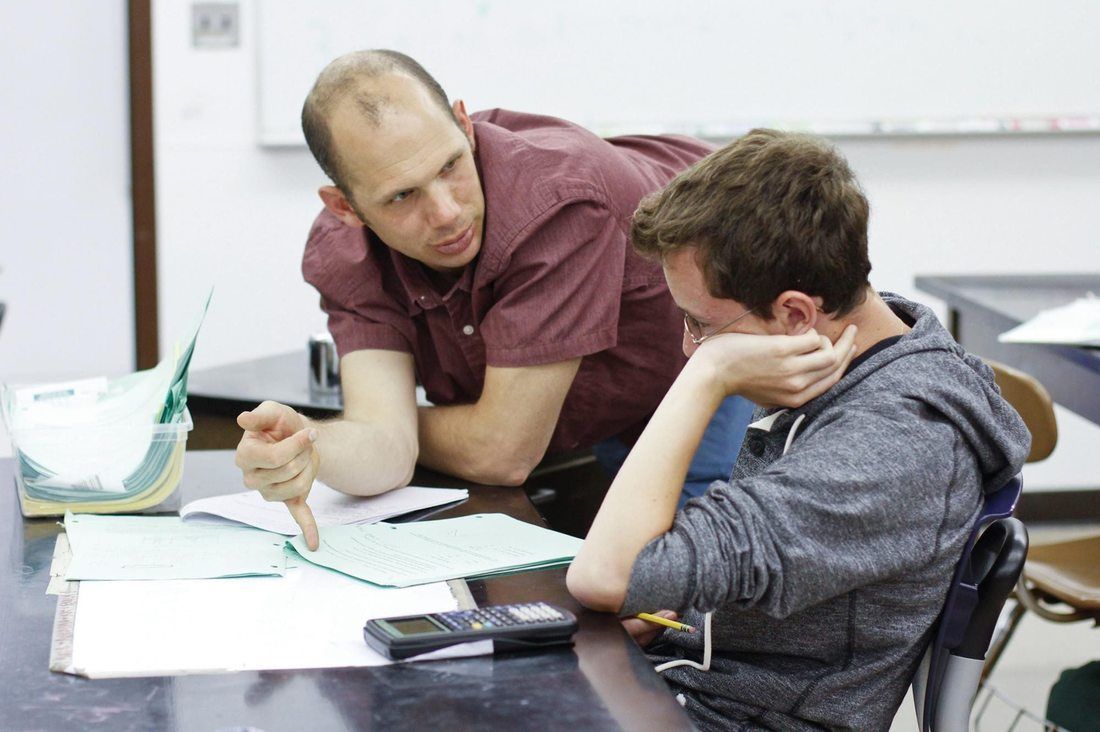|
|
|
Philosophically, I appreciate the debate over grading in schools. I even agree with parts of Alphie Kohn's case against grading. All that being said, in a few weeks I go back to school. To my classroom. To a vocation I LOVE. To a career that provides for my family. And grades are a reality. They are required. They aren't going away.
Keeping this in mind, it does me no good as an educator to engage in debates around the efficacy of grading. I simply want to serve my students the best I can. And, in some ways, I don't think grades should be terminated. Perhaps it is up to us, as educators, to develop new, and thoughtful "hacks" to our current system. To maximize the A-F system in our favor. In a way that serves our students. Builds metacognition. Limits apathy. Motivates. etc., etc., etc. I believe this is possible. And, here's the clincher: IT IS MORE POSSIBLE THAN WAKING UP TOMORROW AND GRADES BEING ELIMINATED. SO, IT'S ON ME TO BE BETTER FOR MY STUDENTS. So...in the spirit of sharing super tangible, grassroots techniques, below is what I'm going to try next semester. Disclaimer: It involves some "old school" moves, such as transitioning to a teacher paper and pen gradebook, but please know, it is all in the spirit of pedagogy. In the spirit of my Ed Tech Mission statement if you will.
This revised system will provide students with the ability to constantly know their "grade" in our class, while simultaneously developing enhanced student awareness of their own performance and build student agency over the grading process. In past years I always had students create either a blog or a website to publicly share their work and curate their progress. Click here for an example.
While I believe deeply in students archiving their work in a public space, after reading Show Your Work, an outstanding book by Austin Kleon, I began to put an incredible amount of pressure on myself to empower students to create beautiful space to showcase their work. In short, I lost track of the pedagogy, in replace for aesthetics. It's not Austin's fault. It's mine. Please read his book, it's hecka inspiring. I reflected on the lack of improved student metacognition despite my enhanced portfolio systems, and student comments such as "Do we have to do another portfolio post. I never look at it...". I began to ask myself: What really actually works? (in my classroom, with MY students). I remembered another comment from one student specifically: "Can we just put everything we did in this topic in a Google Slide presentation. It's SO much easier to include pictures and videos...". My initial reaction to this statement was one of hesitation. No way! Kleon calls us to share our work in a space we are proud of. Nobody is going to look at your Google Slides! Your work needs be in a beautiful website to be taken seriously! Again, aesthetics before pedagogy. Not a good choice. This year, I am putting down my tired attempts at doing what I think is the most "innovative" approach, and following my gut regarding what I feel and my students feel is the most impactful! I am taking my students advice. I created a Google Slide template for each unit, including spaces for students to link all of their major work (Labs, Case Studies, etc.) and a template for built in student reflection. Click here to access the Google Slide portfolio template, and click here to access our class website which will house "view only" version os the portfolios. Yes, not as beautiful as Weebly, SquareSpace, WIX, or even the NEW Google Sites. Ironically however, in just two days of class, I am already noticing a shift in student focus on the project at hand, and not where or how they report it. And...in the end...nothing is stopping us from embedding their Google Slides in a beautiful website. Wink.
Not a new idea at all, but I am always blown away by how productive class is when I assign a writing assignment and spend the class editing and providing feedback to all docs simultaneously. Today I pushed out this template, and groups of students relocated to a myriad of places on campus to complete their formal research article according to the template. I sat at my desk and provided feedback. Super fun. Super simple. Super meaningful. Below is a short video of the process. #embracethemess
After a two-week holiday I, and many of you, go back into the classroom on Monday. During this time I find myself getting up early (like right now) nervous and reflecting on how to, once again, reinvent myself in the classroom. The beauty and the torcher of teaching. #cognitivedissonance.
Below are 5 videos I find myself watching when I need reminders about the teacher I want to be. Some are about research, others remind me to delay direct lecture until students crave more information to fill a gap, while other remind me that simple activities can spark powerful realizations about how the world works.
This video reminds me that cheap tools can have a big impact.
This video reminds me to delay direct instruction until and I spark student curiosity first. This video reminds me of the action research I hope to conduct in my classroom. This video reminds me to encourage myself and my students to find new perspectives. This video reminds me of the type of innovation I want from myself and my students. I was honored to participate in a Public Radio podcast sponsored by the Mill Valley Public Library called "Eight Books that Made Me". Literature has always been a very important part of my life and having the opportunity to reflect on my favorite books, and their impact on my life and career was a blessing. A link to the episode is below:
|
Categories
All
Archives
March 2024
|


 RSS Feed
RSS Feed